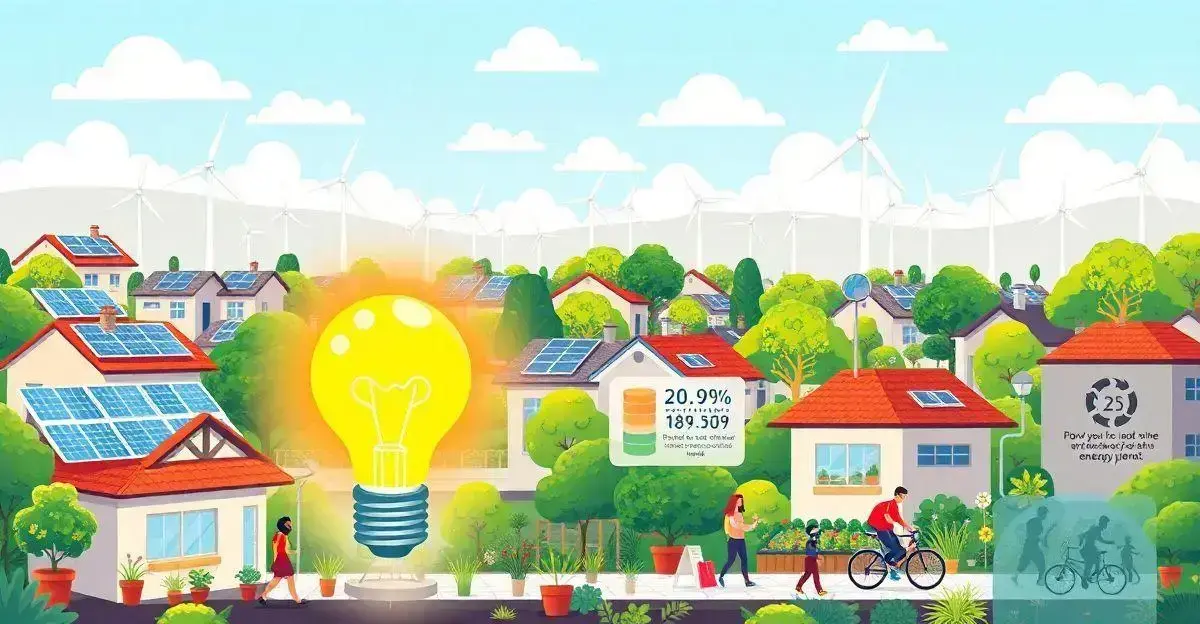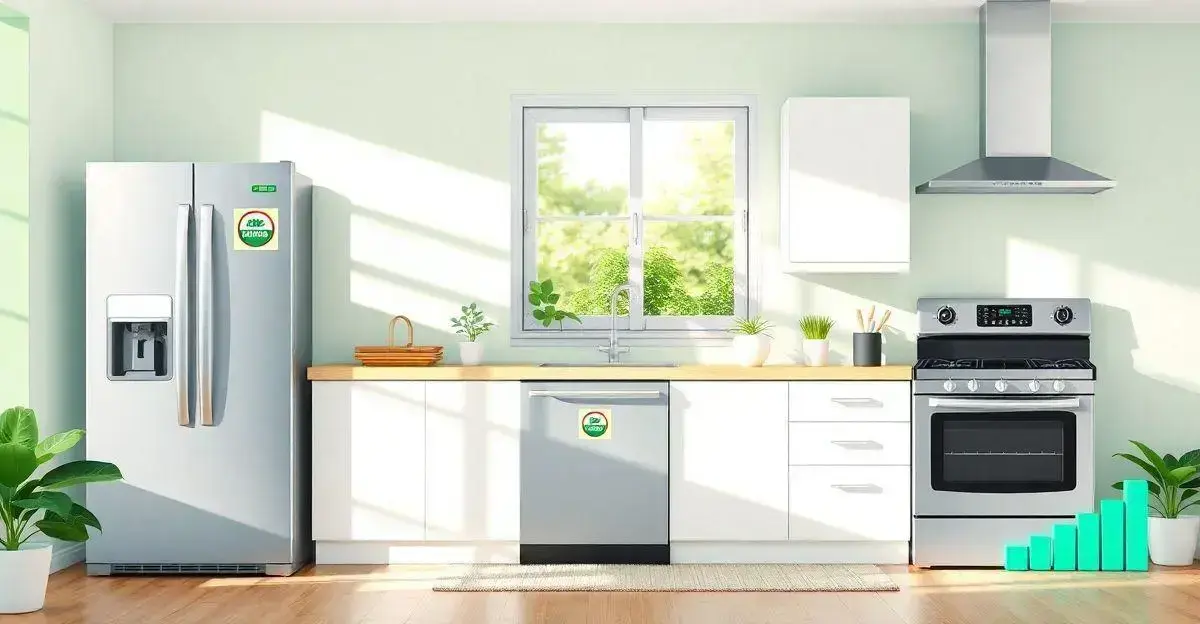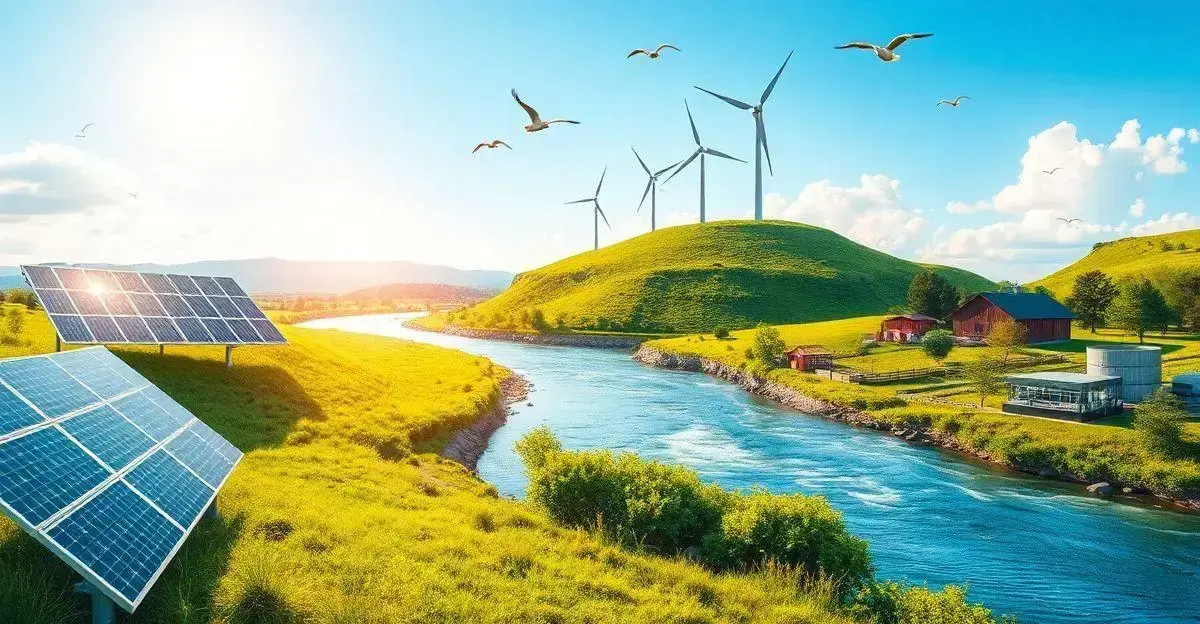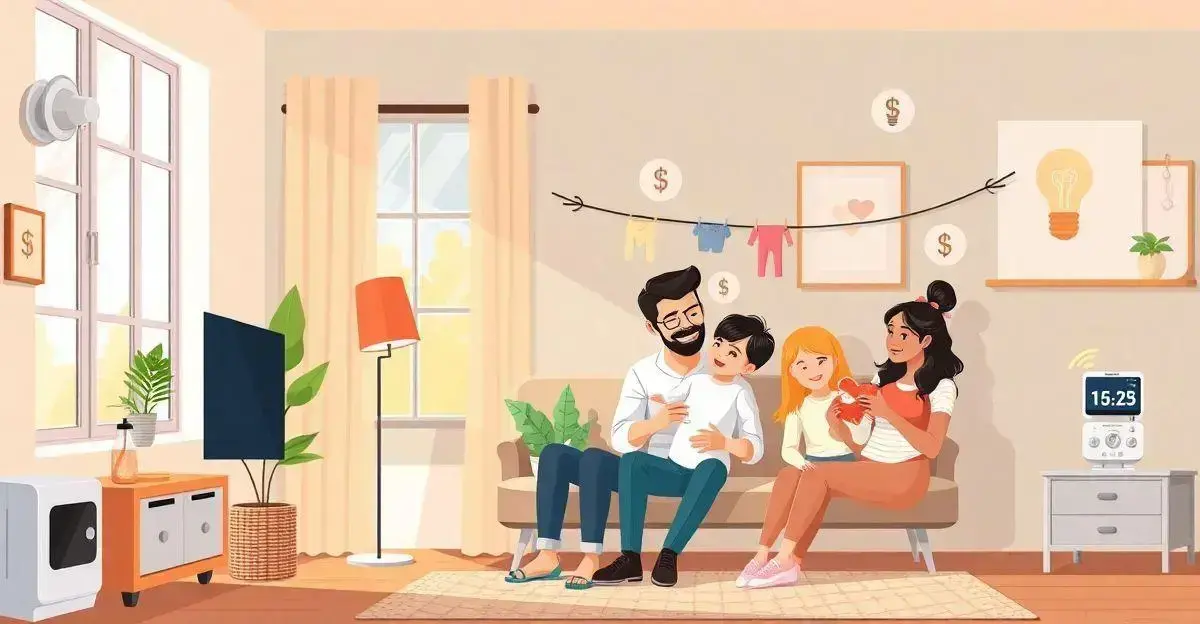Índice
Reducing home energy consumption is vital for saving money and protecting our environment.
By making small adjustments, homeowners can significantly lower their energy bills while contributing to a greener planet.
Understanding Energy Consumption
Understanding energy consumption is key to managing your home’s efficiency. Every appliance, lightbulb, and device uses energy, impacting your overall consumption and utility bills.Electricity is often the main culprit in these expenses, and gaining insight into your usage can help you make informed choices.
Consider how much power different items consume. For instance, old refrigerators may use significantly more electricity than modern, energy-efficient ones. By recognising high-consuming appliances, you can prioritise replacing them or using them less frequently.
Additionally, many homeowners underestimate the energy used by heating and cooling systems. Regular maintenance, such as replacing filters and sealing ducts, can lead to better performance and lower energy usage.
Lastly, monitoring your energy consumption can reveal patterns that help you adjust your habits. Simple acts, like turning off lights and unplugging unused electronics, can collectively reduce your energy use.
Benefits of Reducing Energy Use

Reducing energy use offers many benefits that can help both your wallet and the environment. Firstly, using less energy means lower utility bills, which is a win for any household. The more efficient you are, the less you pay at the end of the month.
Secondly, by cutting down on energy consumption, you significantly reduce your carbon footprint. This means you are doing your part to help the environment, contributing to cleaner air and a healthier planet for future generations.
Another added benefit is the increase in home comfort. When you make energy-efficient upgrades, such as better insulation or modern appliances, your home will feel more comfortable year-round. This can lead to a more pleasant living space and enhance your overall quality of life.
Finally, embracing energy reduction methods can lead to government incentives and rebates. Many regions offer financial help for those who invest in energy-saving appliances or improvements to their homes, leading to even more savings.
Practical Tips for Homeowners
Use energy-efficient light bulbs, such as LEDs.
Consider smart power strips to reduce phantom energy consumption.
Regularly maintain your appliances, like cleaning filters in heating and cooling systems.
Improve your home’s insulation in walls, attic, and around windows.
Set your thermostat a few degrees lower in winter and higher in summer.
Energy-Efficient Appliances

Energy-efficient appliances are designed to use less energy while providing the same level of performance. This can lead to significant savings in your utility bills, making them a smart investment for any homeowner.
When choosing appliances, look for the Energy Star label, which indicates they meet strict efficiency guidelines set by the government. From refrigerators to washing machines, these products are designed to consume less electricity and water.
Using these appliances not only saves you money but also reduces your carbon footprint. For instance, a modern, energy-efficient refrigerator can use up to 50% less electricity than older models.
Moreover, many of these appliances come with additional features that enhance usability. For example, energy-efficient dishwashers often have smart wash settings that save both energy and water by adjusting cycles based on the load size.
Investing in energy-efficient appliances is a crucial step toward reducing your home’s energy consumption and promoting a sustainable future.
Insulation and Sealing Techniques
Insulation and sealing techniques are essential for reducing energy consumption in your home. Proper insulation helps maintain a comfortable temperature by preventing heat loss in winter and keeping cool air inside during summer.
Start by identifying areas that need insulation, such as your attic, walls, and floors. Fibreglass insulation is a popular choice due to its effectiveness and affordability. Make sure to cover any gaps or voids, as these can significantly reduce your home’s efficiency.
Another important aspect is sealing air leaks. Use caulk or weatherstripping around windows and doors to close gaps where air can escape. This simple step can drastically improve your energy efficiency.
Don’t forget to check for leaks around plumbing and electrical outlets, as these can also contribute to energy loss. Applying foam sealant can help close these gaps effectively.
In addition, consider using reflective insulation in warm climates. This type of insulation reflects heat away from living spaces, which can reduce the need for air conditioning.
Renewable Energy Options

Renewable energy options are becoming more popular as homeowners seek to reduce their energy consumption. These options include solar energy, wind energy, and geothermal energy.
Solar energy is one of the most accessible renewable sources. By installing solar panels on your roof, you can generate electricity and heat your home, significantly cutting down on your reliance on traditional energy. Many homeowners also benefit from various incentives and tax credits for adopting solar technology.
Wind energy is another exciting option, although it may require more space. This involves installing a small wind turbine to produce electricity. Even at low wind speeds, today’s technologies can convert wind into energy efficiently.
Geothermal energy uses the Earth’s natural heat. This involves installing a system that exchanges heat with the ground to heat and cool your home. It is a very sustainable choice, as it harnesses energy that is constantly replenished.
Incorporating renewable energy options not only reduces your bills but also contributes to a cleaner environment. By using these clean energy sources, you actively participate in the fight against climate change.
Monitoring and Managing Your Energy Use
Monitoring and managing your energy use is crucial for reducing consumption and saving money. Start by understanding your energy bill, which shows how much energy you use and when.Smart meters are a great tool, as they provide real-time data about energy consumption, allowing you to see where you can cut back.
Consider using energy monitoring apps that connect to your smart meter. These apps can help track your usage, set goals, and send alerts when you exceed your targets. By visualising your energy consumption, you can make informed choices about when to use appliances.
Another effective strategy is to create a habit tracker where you note down daily habits that impact energy use. This can show patterns and help identify areas for improvement, such as turning off lights or unplugging devices when not in use.
Furthermore, having a home energy audit can provide insights into how energy is used in your home. Professionals can assess efficiency and recommend changes. This proactive approach helps ensure you are always on top of your energy management.
Reducing Home Energy Consumption
Reducing home energy consumption is achievable through simple yet effective practices. By understanding your energy use, investing in energy-efficient appliances, improving insulation, and considering renewable energy options, you can significantly lower your bills and contribute to a healthier environment.
Monitoring your energy use helps you make informed decisions and adjust behaviours that lead to savings. Every step towards efficiency counts, making a positive impact on both your wallet and the planet.
By taking action today, you can create a sustainable future for yourself and the generations to come.
FAQ – Frequently Asked Questions About Reducing Home Energy Consumption
What are some simple ways to reduce home energy consumption?
You can reduce energy use by using energy-efficient light bulbs, unplugging devices when not in use, and improving your home’s insulation.
How can monitoring my energy use help me save money?
Monitoring your energy use allows you to identify patterns and areas where you can cut back, leading to potential savings on your utility bills.
What are the benefits of using renewable energy sources?
Using renewable energy sources such as solar or wind power reduces reliance on fossil fuels, saves money on energy costs, and helps the environment.
How do energy-efficient appliances contribute to energy savings?
Energy-efficient appliances use less electricity compared to standard models, leading to lower energy bills while providing the same level of performance.
What role does proper insulation play in energy efficiency?
Proper insulation helps maintain indoor temperatures by preventing heat loss in winter and keeping cool air inside during summer, reducing the need for heating and cooling.
Can I get rebates or incentives for improving my home’s energy efficiency?
Yes, many local governments and utility companies offer rebates or incentives for homeowners who invest in energy-efficient appliances or renewable energy systems.
